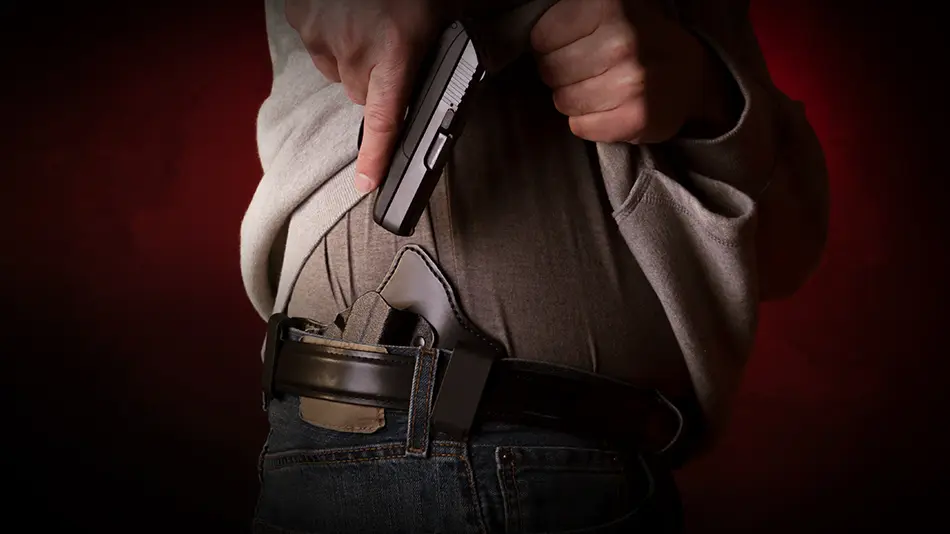Consent to Search
You’re driving home after a long day of work, and a police officer stops you for speeding. He pulls out his ticket book and he asks if there’s anything in the car he should know about. Perplexed, you say no. The officer hands you a ticket and then asks if he can take a look in your car. Do you have to let him into your car? No. Thanks to the Fourth Amendment to the United States Constitution.
Court battles have eroded the Fourth Amendment to the point where more searches today are performed by law enforcement without a warrant than with one. These exceptions to the warrant requirement are numerous and nuanced, and this video will only cover one of them: consent. Also, the most common.
But, to start us off, we have to begin with the Fourth Amendment which reads: “The right of the people to be secure in their persons, houses, papers, and effects against unreasonable searches and seizures shall not be violated. And no warrants shall issue, but upon probable cause supported by oath, or affirmation, and particularly describing the place to be searched and the persons or things to be seized.”
What is a search? A search is a government agent’s intrusion into a person’s reasonable expectation of privacy. The Fourth Amendment provides that the police must obtain a warrant based on probable cause to interrupt this right lawfully, but if a police officer asks to search your person, your vehicle, or home, and you say yes, he isn’t required to obtain probable cause or a warrant. You have provided consent, and this is the most frequently cited exception to the warrant requirement.
What You Can Do if Asked for Consent to Search?
So, what if you find yourself resting comfortably in bed at 2 AM and you hear a loud knock at the front door, and an authoritative voice calls out, “Police; open up”? Do you have to let them in? If they don’t possess a valid warrant, then no. If they claim to have a valid warrant, they will likely force entry into your home if you refuse them entry. In some cases, they don’t even have to knock and announce.
When it comes to a vehicle, most good folks would think they have nothing to hide and allow the police to search it. There are perils to this. You waive any argument that any evidence was gathered illegally. For example, if you keep your prescription thyroid medication in a pill divider and not the original prescription bottle, you could be arrested immediately. It’s always good practice to refuse consent to the search of your home or your car because you never know what the police may find and use against you.
If you do refuse consent, do so politely. Police officers will generally be annoyed by a person who doesn’t permit them to search. The good news is that it’s not against the law. If they want to search your car or your home and they don’t have an exception, they’re required to get a warrant. If you have any questions about the Fourth Amendment or police interactions, please call U.S. LawShield and ask to speak to an Independent Program Attorney today.





And no telling how long they would take searching.
I just want to say that while I’ve never needed you, I appreciate your blog and videos and feel protected carrying your card in my wallet. I love sharing this type of information on my page.
Good to know, Period,
Excellent information, thank you.
That’s good to know
Thanks! After almost 70 years of life, on the planet, I have over a dozen prescriptions which I rarely keep in their original bottles.There are, probably, dozens of laws like the prescription drug bottles which are violated regularly by everyone and it’s publicly acceptable. So GIVING permission is saying it’s OK to LOOK and FIND something, anything illegal. That’s His JOB! This is NOT about being POLITE. I need to wake up!
Thank you. This was very helpful and I’ll remember this a very long time. Again, thank you
Good information shared. Every US citizen should not their rights under the US constitution.
I thank you for your article, but would like to see some example or two other than meds in a divider.
Thank you for the update. I keep your card next to my CHL in my wallet. I pray I never need to make a call. Your articles are always informative.
While this article is good information, it’s important to clarify…the deputy/officer/trooper should have their stop concluded before they ask for consent to search. While this article used the example of the LEO writing a ticket, even if they give a warning, that shouldn’t compel you to consent to the search.
“No officer I do not consent to any search or seizure without a warrant. “
Thanks. That’s why I carry a US Law Shield card in my wallet. Always enjoy your information.
Great information. Always be polite to police officers. Just say I evoke the fourth amendment for your protection and mine.
Wow! I always thought i should give the police the go ahead to search or enter, thanks for the info!!!
When you get pulled over,the policeman know you have a gun /permit.If you let him search you open your self for possible trouble,just decline politely and they may intimidate you but hold the line
Thank you for the information, if an officer ask to search your car I didn’t know you could refuse.
Thank you very much, this is a reminder to all of us to resist politely to any unwarranted searches and the police should get used to it to obey they law too. I like police and security but I decline being searched, suspected and checked for no reason.
Very good reminder on the pill-boxes. I appreciate it because I take only a couple out of my original box and put them in an empty blank box in the car. The prescription has my pharmacist anyway. I am not getting it back after picking up the pills.
I had to call Law Shield one time and got a very good answer – yes, I recommend them! :)
Good to know this vital information thanks
Great Info but I do have a question. If you do not consent to a search and the officer has probable cause and searches anyway do I have to open locked containers or safes in my vehicle without a warrant?